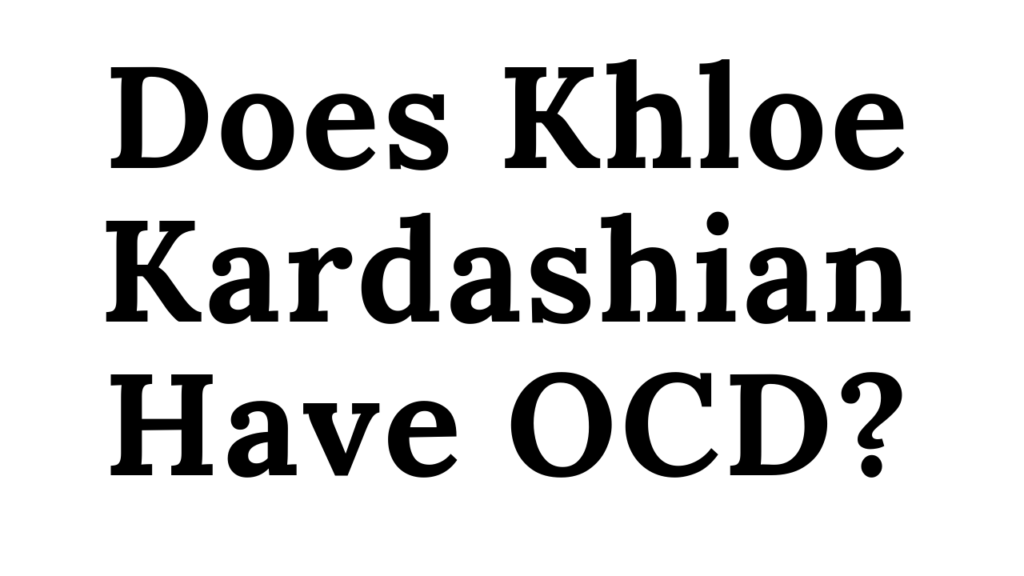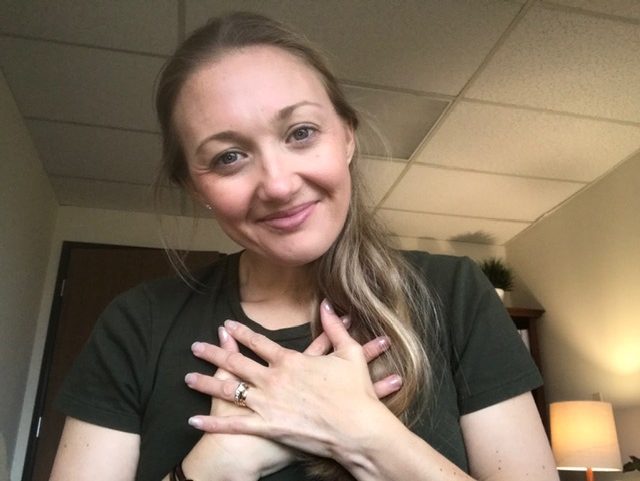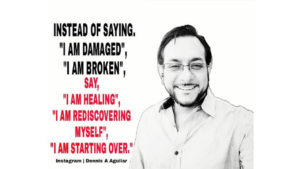Ep. 131: Does Khloe Kardashian Have OCD?

Welcome to another episode of Your Anxiety Toolkit Podcast. There has been a lot of talk lately in the OCD Community surrounding this big question “Does Khloe Kardashian have OCD?” I know a lot of you are really struggling with this topic, feeling unseen, unheard and misunderstood.
In a recent episode of Keeping Up with the Kardashians, Khloe’s mom, Kris Jenner discussed her daughter Khloe’s overwhelming need to be organized. She shared, “Khloe is the most organized, cleanest, most obsessive person I know in her own home. But lately, she’s on another level.”
In response, Khloe explained: “Being the control freak that I am, this experience is torture”. However, she also has been known to explain her need to be organized as “a good thing” and something that “helps” her in her life.
This brings us to the big question: Does Khloe Kardashian have OCD?
Well, the most important thing to remember in this podcast episode is that we cannot diagnose someone we haven’t met. Please keep this in mind as we address this very important topic.
In an effort to do my due diligence, I consulted with an attorney on this and he confirmed that it is not appropriate to diagnose someone you haven’t met. He reported that this is an ethical issue, not a legal issue.
One of the big questions that arose after this recent Kardashian episode was, “Can you treat someone you haven’t diagnosed?”
Again, when consulting with an attorney, we revealed that a therapist technically can in situations where it is not necessary to diagnose someone. However, in order to implement a treatment tool, it is a good standard of care to do a full assessment to be sure the treatment modality and related tools are appropriate for the person we are meeting with.
In an effort to discuss if Khloe Kardashian has OCD and if her description of symptoms and presentation of symptoms meets criteria to be OCD, we would first need to have a good understanding of what OCD is diagnostically.
In the episode, we discuss in depth the Diagnostic Criteria for Obsessive Compulsive Disorder, in an effort to thoroughly educate and advocate for those who have OCD and who are struggling to ask for help.
Diagnostic Criteria (Directly from the DMS 5)
A. Presence of obsessions, compulsions, or both:
Obsessions are defined by (1) and (2):
Recurrent and persistent thoughts, urges, or images that are experienced, at some time during the disturbance, as intrusive and unwanted, and that in most individuals cause marked anxiety or distress.
The individual attempts to ignore or suppress such thoughts, urges, or images, or to neutralize them with some other thought or action (i.e., by performing a compulsion).
Compulsions are defined by (1) and (2):
Repetitive behaviors (e.g., hand washing, ordering, checking) or mental acts (e.g., praying, counting, repeating words silently) that the individual feels driven to perform in response to an obsession or according to rules that must be applied rigidly.
The behaviors or mental acts are aimed at preventing or reducing anxiety or distress, or preventing some dreaded event or situation; however, these behaviors or mental acts are not connected in a realistic way with what they are designed to neutralize or prevent, or are clearly excessive.
Note: Young children may not be able to articulate the aims of these behaviors or mental acts.
B. The obsessions or compulsions are time-consuming (e.g., take more than 1 hour per day) or cause clinically significant distress or impairment in social, occupational, or other important areas of functioning.
C. The obsessive-compulsive symptoms are not attributable to the physiological effects of a substance (e.g., a drug of abuse, a medication) or another medical condition.
It is important that we specify if the symptoms are accompanied by good, fair or poor insight, as this can help us differentiate between the diagnosis of OCD and other mental illnesses that may look the same.
With good or fair insight: The individual recognizes that obsessive-compulsive disorder beliefs are definitely or probably not true or that they may or may not be true.
With poor insight: The individual thinks obsessive-compulsive disorder beliefs are probably true.
With absent insight/delusional beliefs: The individual is completely convinced that obsessive-compulsive disorder beliefs are true.
D. The disturbance is not better explained by the symptoms of another mental disorder, differential diagnosis or set of symptoms
In an effort to really give you a good understanding of other diagnostic possibilities for someone showing similar, but not exact symptoms, I wanted to address some symptoms and disorders that would need to be RULED OUT before treatment. The reason for this is that small differences in the symptoms may drastically change the course of correct treatment. This is a crucial part of the assessment process, done by a therapist, psychiatrist, medical doctor or psychiatric nurse.
The first is perfectionism which can be divided into two categories, adaptive and maladaptive. Adaptive perfectionism is a type of perfectionism that improves the quality of someone’s life while
maladaptive perfectionism negatively impacts a person’s life. Research has shown that both adaptive and maladaptive perfectionists have high personal standards, but failing to meet those standards can have a negative impact.
Perfectionism can also be categorized by orientation. Self-oriented perfectionism is perfectionism that is pushed by the individual person. Self-oriented perfectionists are very hard on themselves, set very high standards for themselves and have rules and expectations that are often unreasonable. Socially prescribed perfectionism is perfectionism that occurs due to societal expectations. This might include the expectation to get good grades in order to have a good life or having to have the “perfect” body to be loved.
It is also important that we address the similarities and differences between OCD and OCPD. According to the Diagnostic and Statistical Manual of Mental Disorders, 5th Edition (DSM-5), OCPD is explained as “a pervasive pattern of preoccupation with orderliness, perfectionism, and mental and interpersonal control, at the expense of flexibility, openness, and efficiency.” People with OCPD have an unhealthy expectation of achieving perfection and have an excessive devotion to work at the expense of leisure time and close personal relationships. They are often inflexible with issues related to ethics and morality and can be seen as judgmental and expect others to live to the same standard.
So, when answering the question, “Does Khloe Kardashian have OCD?” I encourage us all to do our best to continue to educate others on the differences between OCD, levels of insight related to OCD, perfectionism, and OCPD.
I strongly encourage you all to read Shala Nicely’s amazing blog post about this exact issue, mostly addressing the misuse of the term, “I am so OCD”
https://www.shalanicely.com/aha-moments/ocd-is-not-what-you-think/
References used in this podcast
https://www.apa.org/monitor/nov03/manyfaces
https://www.anxiety.org/what-is-the-difference-between-ocpd-and-ocd-and-how-are-they-treated



